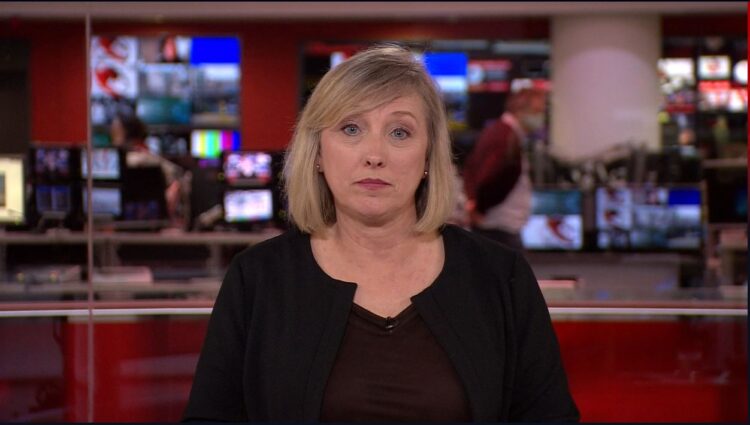By Gabriel Princewill-
BBC Presenter Martine Croxall(pictured) is being investigated by BBC News for a “potential breach of impartiality”. The broadcaster deserves some credit for taking the necessary steps, and leading the way in ensuring accountability- a marked progression from some of the failings that has dogged its reputation in the past.
Several other organisations in the Uk that either don’t have codes of conduct or breach them with impunity.
The decision by the BBC to take Croxall has been taken off air until the investigation is complete at least shows a notably improved level of accountability, invaluable qualities conspicuously absent among many other news outlets.
Boris Johnson’s fall came due to a flagrant lack of accountability in the decision to overlook the seriousness of complaints about sexually inappropriate conduct, and many other departments were also found behaving lousily under his leadership. Intolerable conduct that goes unchecked is always a bad reflection on the leadership of the organisation in question. The BBC’s decision to act fast is commendable.
following complaints on social media over the comments on her Sunday’s newspaper review programme.
The impropriety of Croxall’s comments during the introduction of her Sunday programme after Boris Johnson ruled himself out from the Conservative leadership race was mild in comparison to some if the flagrantly biased conduct exhibited by other so-called professionals on other platforms, but it was nonetheless wrong.
She told told viewers she felt “gleeful” at Johnson’s withdrawal from the conservative leadership race.
The programme aired around 90 minutes after the former prime minister claimed to have enough support to progress in the Tory leadership race but had decided to withdraw.
As The Papers programme began just after 22:30 on Sunday evening, Croxall told viewers: “Well this is all very exciting isn’t it? Welcome to our lookahead to what the papers will be bringing us tomorrow. Am I allowed to be this gleeful? Well I am.”
She was then seen asking her guests: “Can we even show you the front pages just yet, have they arrived? No they haven’t arrived. It’s all a little bit, you know, lastminute.com isn’t it? Because all the front pages were probably out of date by the time we received them.”
She was forced to apologise to viewers for laughing after Mr Grew mocked Mr Johnson by saying that “Boris Johnson thinks he should be world king, course he thinks he’s best placed to win an election in 2024. He probably think he’s best placed to win the American presidential election in 2024”
Her expressed acknowledgement during the programme that her comments could have breached BBC guidelines was embarassing.
Responding to a guest’s joke aimed at Mr Johnson, she said: “I shouldn’t probably (laugh). I’m probably breaking some terrible due impartiality rule by giggling.”
On Monday, a BBC spokesperson said: “BBC News is urgently reviewing last night’s edition of The Papers on the News Channel for a potential breach of impartiality.
“It is imperative that we maintain the highest editorial standards. We have processes in place to uphold our standards, and these processes have been activated.”
One Conservative MP, Neil O’Brien, called the presenter’s comments “self-destructive”.
Nick Timothy, previously an adviser to former prime minister Theresa May, added: “Whatever you think of Johnson, if you care about the BBC you cannot think this is in any way acceptable from one of its presenters.”
The broadcaster’s memo to staff reads: “The BBC is committed to achieving due impartiality in all its output. This commitment is fundamental to our reputation, our values and the trust of audiences.
“The term ‘due’ means that the impartiality must be adequate and appropriate to the output, taking account of the subject and nature of the content, the likely audience expectation and any signposting that may influence that expectation.”
“Due impartiality usually involves more than a simple matter of ‘balance’ between opposing viewpoints”, but says “it does not require absolute neutrality on every issue or detachment from fundamental democratic principles, such as the right to vote, freedom of expression and the rule of law”




